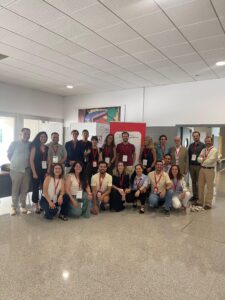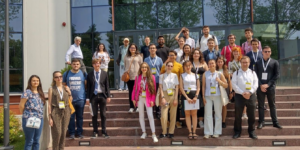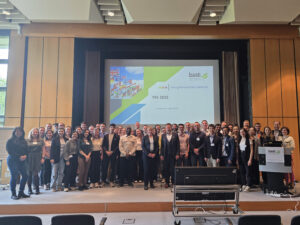El lunes 9 de mayo, el Dr. Chandra Bhat impartió el seminario: Connected and automated cars.
 El Dr. Bath es profesor en la Universidad de Tejas en Austin (Estados Unidos), concretamente de la Escuela de Ingeniería de Cockrell en el Departamento de Ingeniería Civil, Arquitectónica y Medioambiental.
El Dr. Bath es profesor en la Universidad de Tejas en Austin (Estados Unidos), concretamente de la Escuela de Ingeniería de Cockrell en el Departamento de Ingeniería Civil, Arquitectónica y Medioambiental.
Además es Director del Center for Transportation Research Adnan Abou-Ayyash Centennial y catedrático de Ingeniería del Transporte
Lugar: sala de seminarios, primera planta.
Descripción de su seminario:
A connected vehicle (CV), broadly speaking, is one that is equipped with internet access and a wireless local area network that enables the vehicle to communicate with other vehicles and the transportation infrastructure. A plethora of CV safety and mobility benefits are envisioned. For instance, according to the estimates of the US Department of Transportation, connected vehicles can potentially eliminate about 80 percent of vehicular crashes. With the CV technologies, the past focus of helping people survive crashes will switch to the new paradigm of helping people avoid crashes. In addition, CV technologies can enhance transportation system performance through the provision of real-time traffic, transit, and parking data, and reduce travel-related environmental impacts. Similarly, automated vehicles can help with such driving tasks as lane-keeping and frontal collision avoidance. At its most advanced stage, automated vehicles can completely obviate the need for a human driver, leading to driverless cars that have the potential to substantially increase transportation carrying capacity and also improve safety. This seminar will focus on a plain-speak discussion of the connected vehicle (CV) and automated vehicle (AV) concepts, and discuss the challenges, technologies, and benefits related to CV and AV deployment (including privacy and security considerations).





